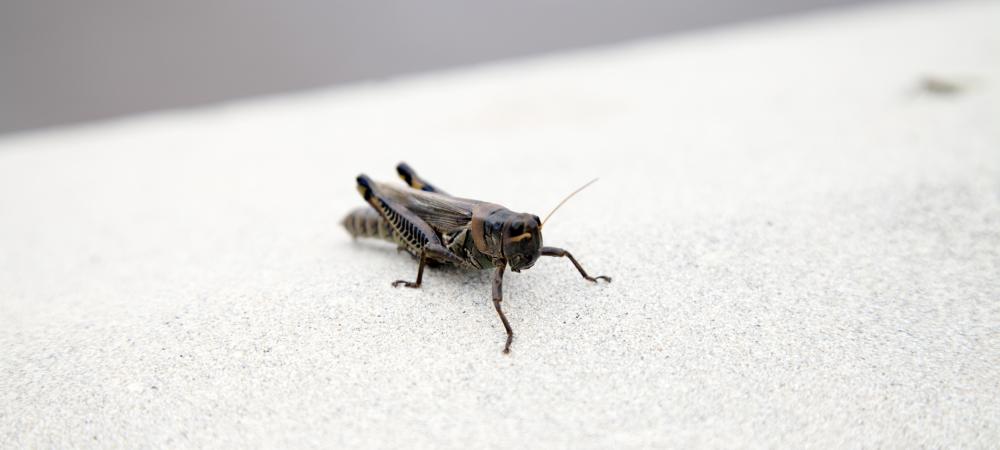How to Get Rid of Crickets in Greenville, SC

If you've ever been bothered by the incessant chirping or found these hopping insects invading your living spaces, you're not alone. Crickets are common pests that can disrupt peaceful evenings and cause frustration for homeowners and businesses alike. Learn how to prevent cricket infestations and get back to enjoying serene South Carolina nights.
How to Get Rid of Crickets in the House
Getting rid of crickets inside the house requires a combination of preventive measures and targeted treatments. Here are a few steps to help you eliminate crickets from your living spaces:
- Identify Entry Points: Inspect your home for any cracks, gaps, or openings that could serve as entry points for crickets. Seal these openings using caulk or weatherstripping to prevent further entry.
- Reduce Moisture: Crickets are attracted to moisture. Fix any plumbing leaks and ensure proper ventilation in damp areas like basements and crawl spaces.
- Use Sticky Traps: Place sticky traps near cricket-infested areas. These traps are non-toxic and will catch crickets when they come into contact with them.
- Diatomaceous Earth: Sprinkle food-grade diatomaceous earth around entry points and cricket-prone areas. This natural substance is harmless to humans and pets but can effectively deter and kill crickets.
- Essential Oils: Use essential oils like peppermint, lavender, or citronella in a diffuser or as a spray. Crickets dislike the strong scent and may be repelled by it.
- Seal Food Containers: Keep all food stored in airtight containers to prevent attracting crickets and other pests.
How to Get Rid of Crickets Outside
Getting rid of crickets outside the house involves targeting their habitats and using natural repellents. Here are a few ways to help you control crickets in your outdoor areas:
- Remove Debris: Clear leaf piles, grass clippings, and other debris where crickets may hide and breed.
- Trim Vegetation: Keep the grass and shrubs trimmed to reduce potential hiding spots for crickets.
- Use Outdoor Lighting Wisely: Crickets are attracted to bright lights. Consider using motion-activated or yellow bug lights to reduce their attraction.
- Create a Barrier: Sprinkle diatomaceous earth or a natural cricket barrier product around the perimeter of your house to deter crickets from coming near.
- Beneficial Predators: Attract natural cricket predators, such as birds, to your yard by providing bird feeders or birdhouses.
- Homemade Cricket Traps: Place shallow containers with beer or a mixture of water and molasses in outdoor areas. Crickets are attracted to the scent and will fall in and drown.
- Clean Yard Tools: Remove grass and debris from lawnmowers, gardening tools, and outdoor equipment that crickets might use as shelter.
By implementing these measures, you can create a less hospitable environment for crickets, reducing their population and keeping them away from your outdoor living spaces.
Why do Crickets Make Noise?
Crickets make noise primarily as a means of communication and attracting mates. The sound they produce is called "chirping," serving several purposes in the cricket world:
- Mate Attraction: Male crickets chirp to attract females during the mating season. The loud and distinctive chirping acts as a courtship song to signal their availability and to demonstrate their fitness as potential mates.
- Territorial Defense: Male crickets may also chirp to establish and defend their territory. The chirping serves as a warning to other males to stay away from their chosen area.
- Species Identification: Different species of crickets produce unique chirping sounds. By chirping, crickets can identify their own species' members, avoiding potentially mating with the wrong species.
- Temperature Regulation: Chirping is also influenced by temperature. Warmer temperatures increase the rate of chirping, while cooler temperatures slow it down. By monitoring the chirping rate, crickets can adjust their activities and mating behavior accordingly.
- Establishing Presence: Chirping can be a way for crickets to establish their presence and location in their environment. It helps them avoid collisions with other crickets and predators.
While the sound of crickets chirping may be a familiar and sometimes soothing sound during warm South Carolina summer evenings, it can be a nuisance when they gather in large numbers near human dwellings. Nevertheless, their chirping plays a crucial role in their survival and reproduction within their natural habitats.
How to Stop Crickets From Chirping
You can’t completely stop crickets from chirping, as chirping is a natural and essential behavior for these insects. However, using methods to reduce the number of crickets on your property listed above can reduce the amount of chirping you hear.
Professional Cricket Control in Greenville, SC
If you’ve tried DIY cricket control, but the sound is still keeping you up at night, call ProCore! Our Greenville exterminators will be out to your property in no time to help mitigate your cricket problem or any other infestation you might be dealing with. Get a free estimate today!
